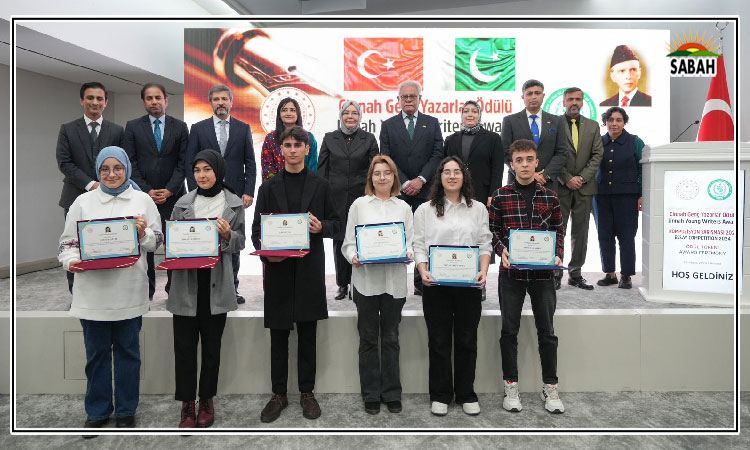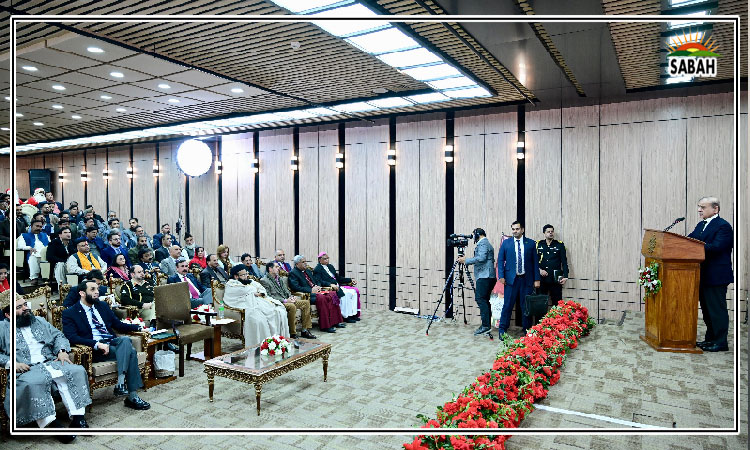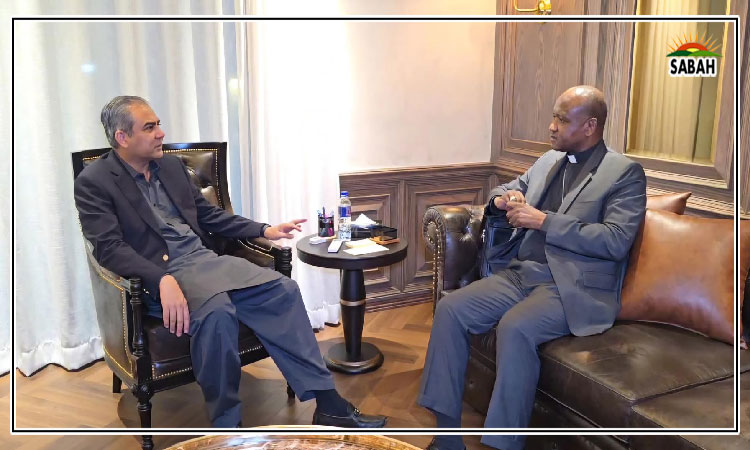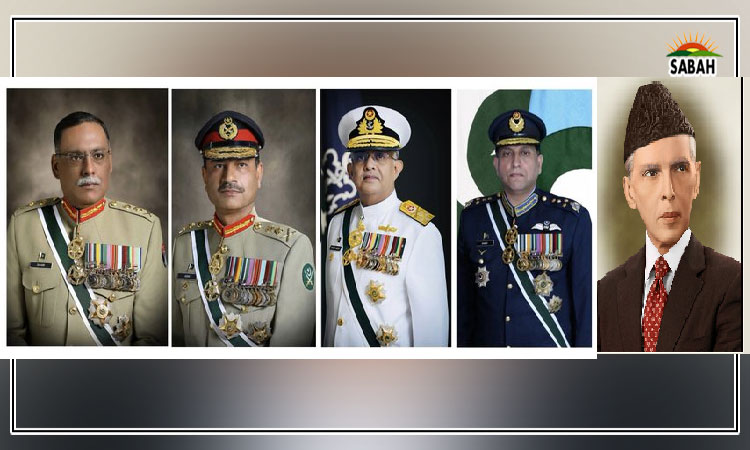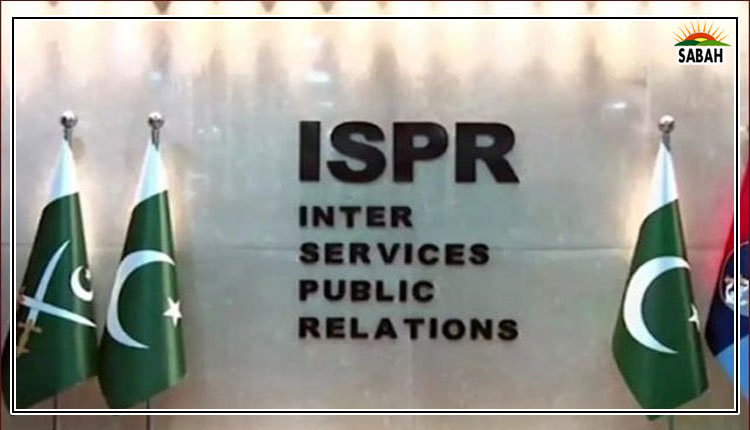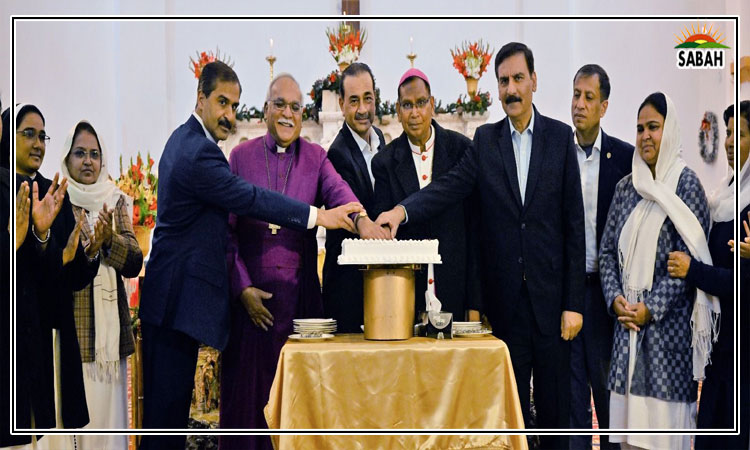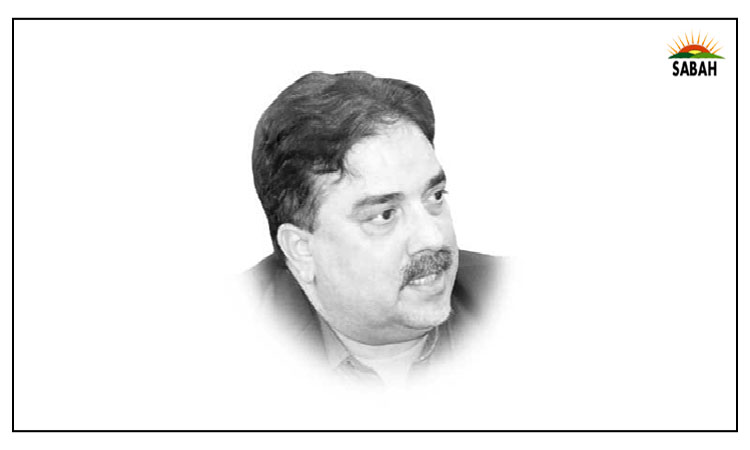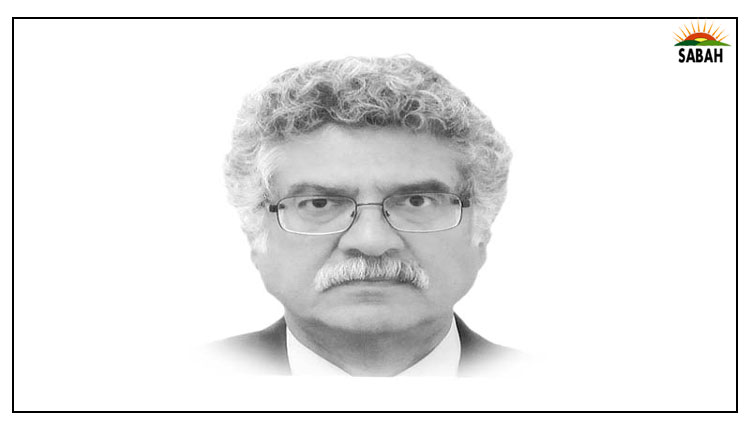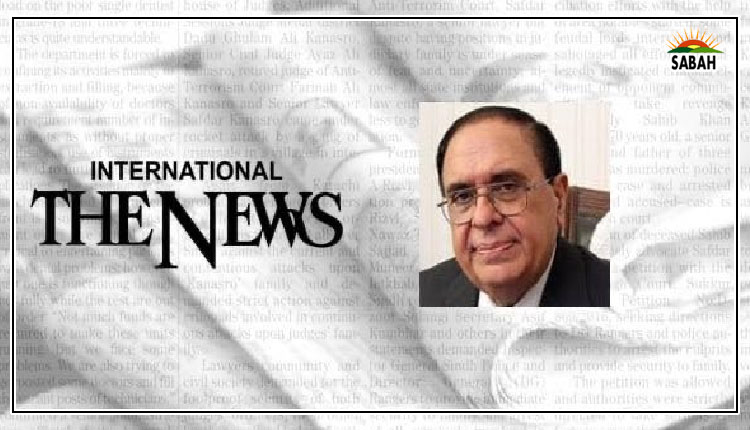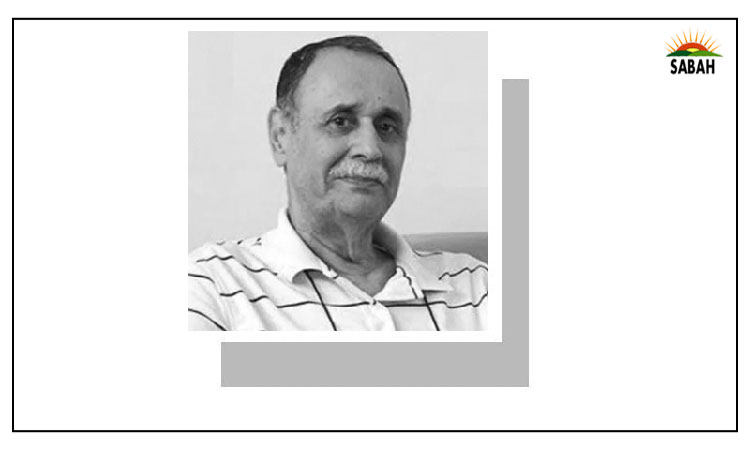Porous loans…Naeem Sadiq
“Rags make paper/ paper makes money/ Money makes banks/ Banks make loans/ Loans make beggars/ Beggars make rags” — an 18th-century poem, when paper was made from rags, not trees.
IN 2023, the developing countries paid a record $1.4 trillion to rich countries, just to service their debt, according to the World Bank’s debt report, 2024. Pakistan, a leading loan addict, has so far received a total of $203 billion in external finance and paid back $135bn in interest and principal charges. As of today, Pakistan’s external debt stands at $133.5bn, with an obligation to cough up $24.6bn in fiscal year 2024 as debt servicing.
Foreign loans are much like porous buckets that leave nothing for the neediest at the end of the line. Loaded with ambiguous jargon and nebulous objectives, loans have driven countries into absolute servility, dementia, dependence, and bankruptcy. Each loan offers the same menu in slightly rearranged combinations of phrases such as ‘resilient processes’, ‘fiscal spaces’, ‘gender inclusiveness’, ‘social protection’, ‘disaster management’, ‘climate mitigation’, ‘sustainability’, and ‘capacity building’. How come no one questions the fact that Pakistan has been receding on all counts of development since its first knock at the IMF door back in 1958. Where did the $203bn disappear and dissipate? Why do we continue to acquire loans for identical wishy-washy reasons?
In 2019, FBR received a loan of $400 million, ostensibly to increase its domestic revenue by broadening the tax base and facilitating compliance. But then we suffered an attack of amnesia and negotiated another loan of $400m in 2023 for differently worded similar objectives. Both loans failed to address the long-standing issues of Pakistan’s tax machinery — which requires internal changes and not loans. The two loans, however, make Pakistan poorer by about a billion dollars.
In December 2020, Pakistan obtained a $200m World Bank loan for “the Sindh Resilience project to strengthen capacity for disaster preparedness and emergency response”. However, in November 2024, Pakistan secured yet another loan of $500m from the Asian Development Bank for the Climate and Disaster Resilience Enhancement Programme. When questioned under the ‘right to information’ to explain the specific projects to be undertaken with this loan, the government responded with a brief one liner: “This is a policy-level loan.”
The $100m World Bank loan obtained in December 2020 to improve solid waste management services in Karachi will be remembered as an example of how foreign loans can destroy a country’s ability to perform even the most mundane tasks such as sweeping, collecting, and disposal of solid waste. The cruellest aspect of this entirely unwarranted loan was that the actual task was further sublet to Chinese and Turkish companies. As foreigners do not wish to sweep our cities, they further subcontracted the same task to Pakistani contractors and workers — at a pittance.
Yet another case of amnesiac repetition is Pakistan obtaining $350m from the World Bank in December 2023 for Resilient Institutions for Sustainable Economy (RISE-II). However, in December 2024, Pakistan signed another $300m loan agreement with ADB that was described as “financing to achieve the programme’s objectives of inclusive growth, poverty reduction, skills development, and healthcare access for vulnerable populations” (the quagmire is inescapable).
The Karachi Water and Sewerage Board, which is notorious for its underwhelming performance, is an ideal spot for loan parking. It received a loan of $100m in 2019 to improve access to safe water services in Karachi. However, on Dec 12, 2024, a new loan of $240m was signed for providing safely managed water, sanitation, and hygiene in the city of Karachi. The project is suitably named (eye) WASH.
Architect Arif Hasan in his article ‘IFI Loans and the Failure of Urban Development’ describes how between 1976 and 2003, Pakistan took loans of $1.4bn for urban development, mostly for water and sanitation projects. Despite these huge investments, infrastructure, environmental, and socioeconomic conditions in the urban areas of the country deteriorated considerably. Public health consultant Dr Samia Altaf expresses identical views in her excellent book So Much Aid, So Little Development. It is time for Pakistan to go cold turkey on its foreign loans that hugely reward a few individuals at the cost of pushing many generations into debt, dependency, and degradation.
The writer is an industrial engineer and a volunteer social activist.
COURTESY DAWN



